
Changes under the DSM-5 mean that certain "mixed features" create a gray area of characteristics that could signal major depression or bipolar disorder, even if a patient has not exhibited hypomania.

Changes under the DSM-5 mean that certain "mixed features" create a gray area of characteristics that could signal major depression or bipolar disorder, even if a patient has not exhibited hypomania.

Screening for depression in the primary care setting can take as little as 30 seconds, but screening is only effective if it actually leads to intervention, explained Michael E. Thase, MD, professor of psychiatry and director of the Mood and Anxiety Program at the University of Pennsylvania.

Studies show that the earlier a child with attention-deficit/hyperactivity disorder is treated with stimulants, the less likely he or she is to develop a substance abuse problem later in life.
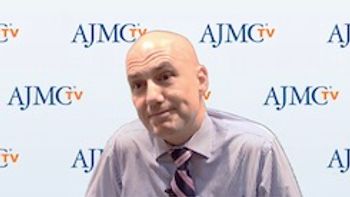
John Eikelboom, MD, of McMaster University discusses the 3 outcomes of the COMPASS trial that address the main concerns of patients.

The majority of patients with pulmonary arterial hypertension, except for a few special circumstances, will begin treatment on combination therapy, instead of monotherapy, because combination therapy has been shown in trials to ahve better outcomes, explained Simon Gibbs, MD, Reader in Pulmonary Hypertension at the National Heart and Lung Institute, Imperial College London.
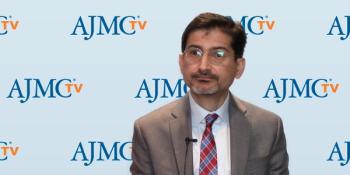
The perspective of the decision maker in healthcare affects the meaning of value and the US healthcare system is still trying to figure out how to measure value, said Darius Lakdawalla, PhD, Quintiles Chair in Pharmaceutical Development and Regulatory Innovation at the School of Pharmacy at the University of Southern California.
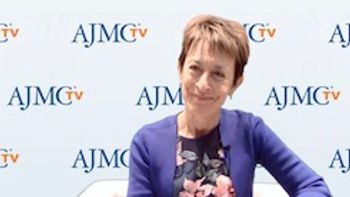
Healthcare providers can encourage cardiac patients to adhere to exercise and diet guidelines by asking how they are doing with recommendations and emphasizing the importance of following through, explained Christi Deaton, PhD, RN, FAHA, FESC, of the University of Cambridge.
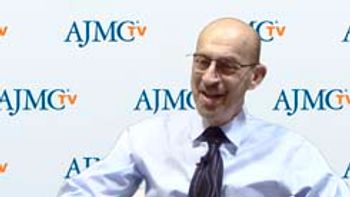
Two recent trials have demonstrate which types of patients are benefit the most from being treated with PCSK9 inhibitors, explained Steven Nissen, MD, of Cleveland Clinic.

Ilene Hollin, PhD, MPH, the National Pharmaceutical Council and University of Southern California Schaeffer Center’s Postdoctoral Health Policy Fellow, discusses what needs to be included in the next generation of value assessment frameworks in order to best identify value that is representative of all patient preferences.

Researchers have known for years: what happens to mom in pregnancy affects the baby. That holds true with prenatal exposure to air pollution, which has lingering cardiovascular effects, such as birth defects and a higher risk of obesity, explained Jeanette Stingone, PhD, of Mount Sinai Health System.
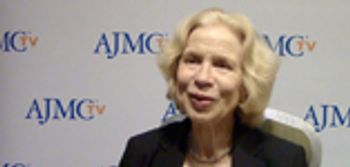
The United States can benefit from taking and adapting certain elements of European countries’ systems and methods of assessing value, says Patricia Danzon, PhD, the Celia Moh Professor at The Wharton School, University of Pennsylvania.

Patients can self-manage their cardiovascular disease and improve their quality of life by improving diet, being more physically active, taking medications as prescribed, and being partners in their care with their healthcare provider, said Christi Deaton, PhD, RN, FAHA, FESC, of the University of Cambridge.

The rivaroxaban plus aspirin combination therapy to treat patients with stable coronary or peripheral artery disease showed such benefits in the COMPASS trial that it should become the standard of care, said John Eikelboom, MBBS, MSc, FRCPC, associate professor at McMaster University.

Patients with heart failure tend to have other health issues, requiring cardiologists to understand how to care for heart failure while keeping in mind treatment for these other comorbidities, said panelists at the European Society of Cardiology Congress 2017, held August 26-30 in Barcelona, Spain.

Pulmonary arterial hypertension requires vigilant monitoring beyond just a superficial conversation, including several yearly tests and analyses, according to Simon Gibbs, MD, Reader in Pulmonary Hypertension at the National Heart and Lung Institute, Imperial College London.

The results of the COMPASS trial testing rivaroxaban plus aspirin in patients with coronary artery disease or peripheral artery disease showed such significant benefits for reducing ischemic events that it was stopped early, explained Deepak Bhatt, MD, MPH, of Brigham and Women's Hospital and Harvard Medical School.

For each level of cardiovascular risk, lifestyle factors remain a significant contributor that can be modified to reduce risk. However, some risk will remain nonmodifiable and require therapy, according to panelists during a session on cardiovascular prevention at the European Society of Cardiology Congress 2017, held August 26-30 in Barcelona, Spain.
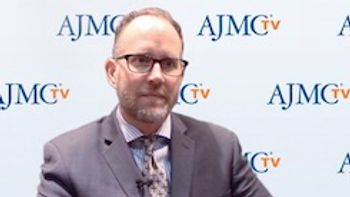
Emergency cardiac care is an interesting challenge for digital health but it has a lot of potential if it can bring together the public and the healthcare system to create app, predictive models, and more to be able to detect stroke and acute myocardial infarction earlier, explained John Rumsfeld, MD, PhD, chief innovation officer at the American College of Cardiology.

Rivaroxaban plus aspirin has significant benefits for patients with peripheral artery disease (PAD) and stable coronary artery disease, according to the results of the COMPASS (Cardiovascular OutcoMes for People using Anticoagulation StrategieS) trial, presented at the European Society of Cardiology Congress 2017, held August 26-30 in Barcelona, Spain.

Trial results that will be presented at the European Society of Cardiology Congress 2017 in Barcelona, Spain, will open up a new window into treatment for patients at risk of major cardiovascular events, explained Steven E. Nissen, MD, of Cleveland Clinic, at the start of the conference.

A one-size-fits-all approach to value is impossible in the US healthcare system, but a pluralistic approach is extremely complex to implement, says Ilene Hollin, PhD, MPH, the National Pharmaceutical Council and University of Southern California Schaeffer Center’s Postdoctoral Health Policy Fellow.

A combination of different countries’ health systems can set an example for the United States to follow in efforts to restrain the ongoing increases in drug prices, explains Patricia Danzon, PhD, the Celia Moh Professor at The Wharton School, University of Pennsylvania.

Patients, payers, and providers all view value in different ways, and they all need to be taken into account in value frameworks, said Ilene Hollin, PhD, MPH, the National Pharmaceutical Council and University of Southern California Schaeffer Center’s Postdoctoral Health Policy Fellow.

Coverage from the 2017 meeting of the American Association of Diabetes Educators.

Coverage from the 2017 meeting of the American Association of Diabetes Educators.

There are differences between cost effectiveness and affordability that people don't always understand. A drug may be cost effective but still not fall within the budget, explained Patricia Danzon, PhD, the Celia Moh Professor at The Wharton School, University of Pennsylvania.

Medical bankruptcy is indefensible and even if patients are willing to bankrupt themselves to purchase a cure, doesn't mean that is how pricing and reimbursement of treatments should be handled, said Darius Lakdawalla, PhD, Quintiles Chair in Pharmaceutical Development and Regulatory Innovation at the School of Pharmacy at the University of Southern California
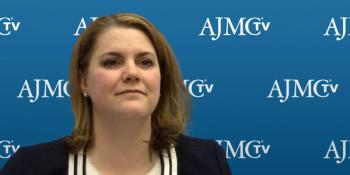
Jennifer Graff, PharmD, vice president of comparative effectiveness research at the National Pharmaceutical Council, discusses where payers receive their information and how it is used to make decisions about coverage and reimbursement.
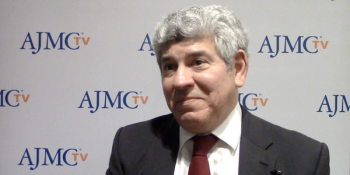
Michael Sherman, MD, chief medical officer at Harvard Pilgrim Health Care, discusses the challenges of moving towards performance-based risk-sharing agreements and where they would work best for certain treatments.

Alan Carter, PharmD, principal investigator and senior advisor at MRIGlobal, and adjunct faculty at University of Missouri—Kansas City School of Pharmacy discusses the influence of biosimilars and follow-ons in the insulin market and their reliability should be validated.

259 Prospect Plains Rd, Bldg H
Cranbury, NJ 08512
© 2025 MJH Life Sciences®
All rights reserved.
